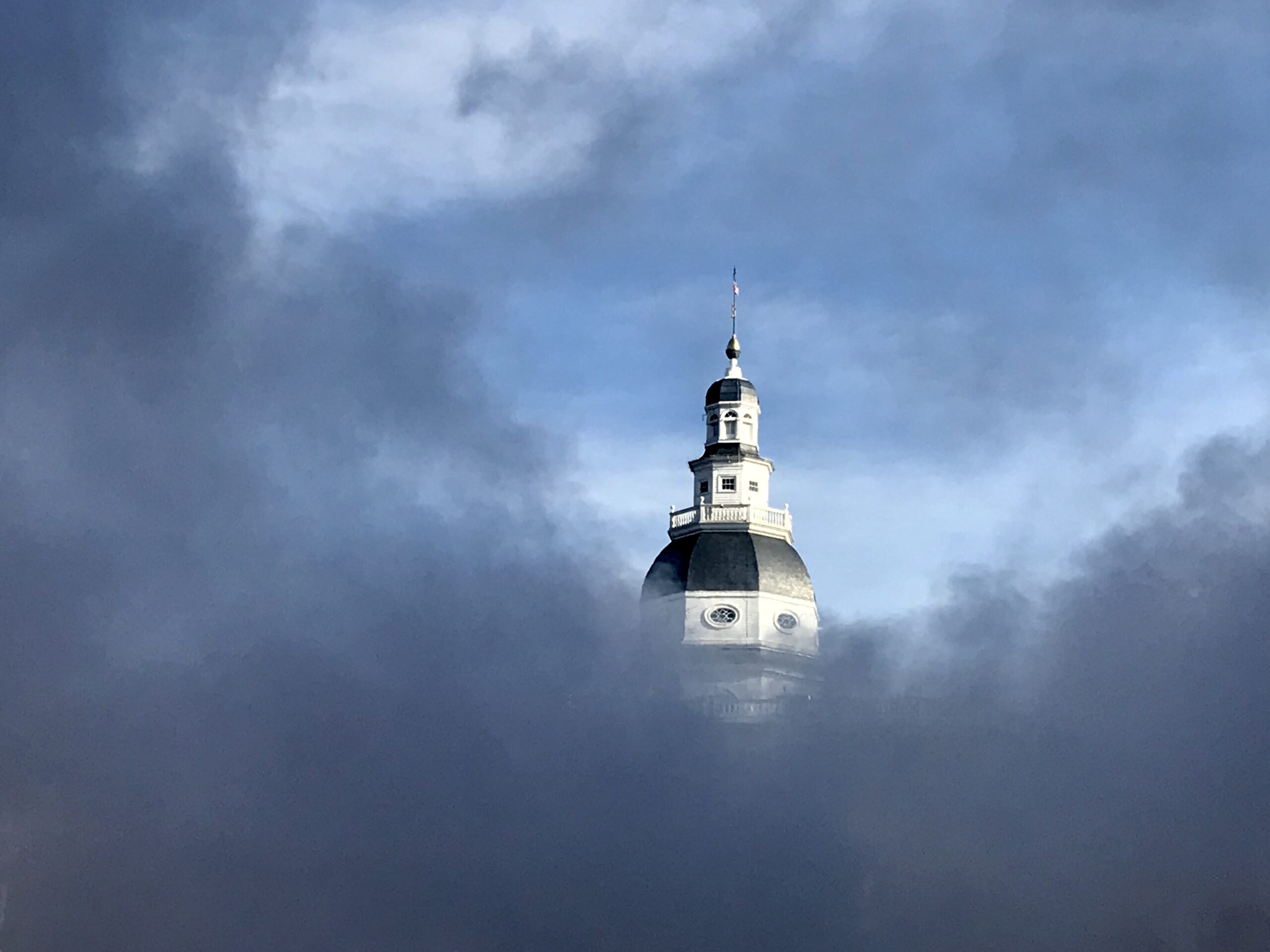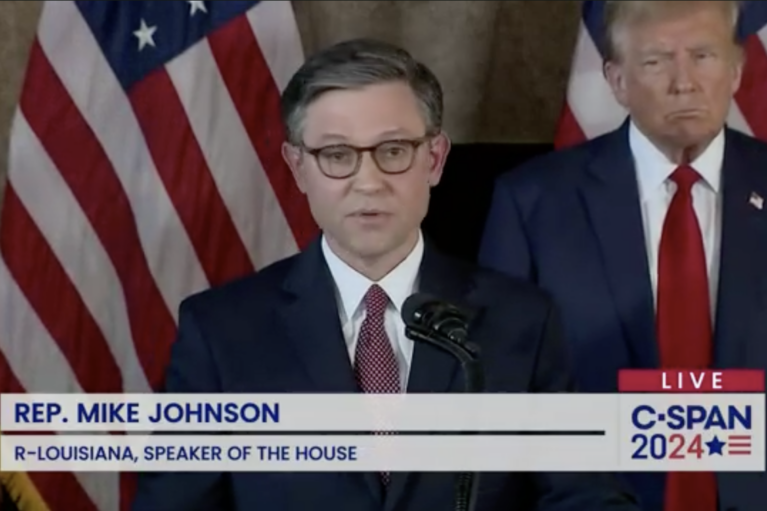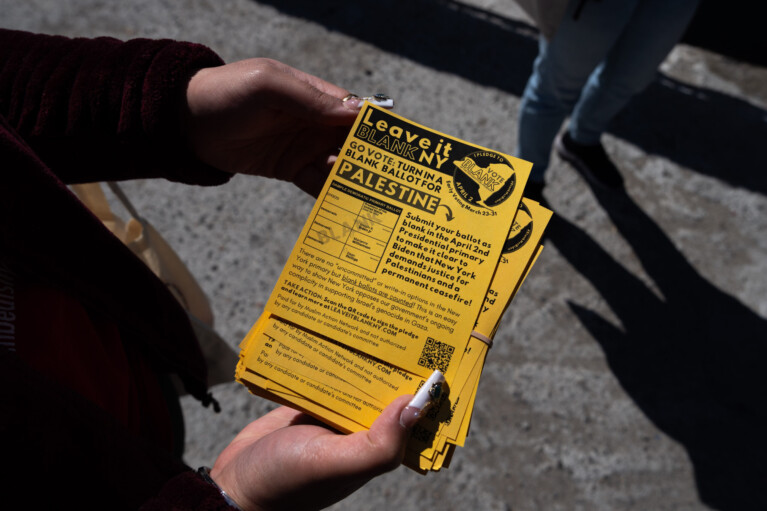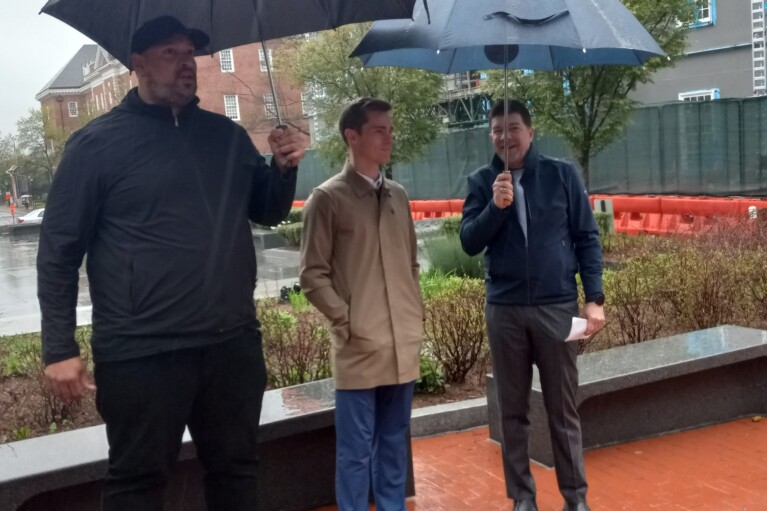Essay: Memories of Md. 1994 Ballot Battle, With the Nation at a Precipice

Today, as the sun comes up on these United States, we as a people stand on a precipice.
Those sound like such big words, alarmist even, an image that might be tossed out in a high school oratory contest, a little hyperbolic to capture and ensure the listener’s attention.
But alas, the threats anew to the nation we have known, loved, hated and taken for granted, are likely true.
This morning, we find ourselves inching closer to the edge, peeking over into the abyss, staring slack-jawed in disbelief at the Grifter-In-Chief’s refusal to go quietly — if voters show him the door — and the legal apparatus of what used to be the Republican Party doing everything in its power to stomp out the franchise wherever it can be got, crushing the hallmark of our Republic.
Unabashed en masse voter suppression, elimination of votes cast without a hint of pretense, court-blessed intimidation by way of gun thugs standing guard as “poll watchers.” Violence on one side or the other almost sounds inevitable, regardless of who wins.
The events leading up to this dawn make all the partisan strong-arming to deaden democracy that we’ve endured up to this point — including the once-peerless dirty tricks of Richard Milhous Nixon and his boyos — seem like the work of a bunch of pikers.
I write this at the risk of sounding like an agita-filled purveyor of devastating possibilities, blathering on just to hear myself talk while I wring my hands in anticipation of the Election Day results, whenever they might be learned.
We’ve been in tough spots over the last 244 years, but almost all of the threats to our security have come from outside our borders, with the exception of the big one that bubbled up from within, the American Civil War, a not-so-minor chapter in our history.
Yet this one feels different, an ugly cautionary tale in which we can’t even guess the ending, the true ending.
You couldn’t invent this runup. In fact, the Hollywood elites would never buy the concept, even with the promise of an army of zombies or an Independence Day spaceship in the second act.
Maryland roots
Over the last few decades, there have been telling incidents that nourished the roots of this blossom in Maryland.
Some 26 years ago, I recall having a conversation with then-Del. Robert L. Ehrlich Jr. and a couple of other folks outside the main ballroom at a Towson hotel where the Maryland Republican Party was holding its semiannual state convention.
This was the year Ehrlich was stepping up, running for the U.S. House of Representatives from Maryland’s 2nd District to take the soon-to-be-vacated seat of Rep. Helen Delich Bentley. It was also before he became a loyal disciple of not-yet-House Speaker Newt Gingrich, the GOP bomb-thrower many hold responsible for successfully lighting the fuse that ignited the payloads of divisive rhetoric and conspiracy theory in the country.
Unexpectedly, a wild-eyed young man, stalked up uninvited and announced, “The only good Democrat is a dead Democrat.”
The guy sounded more like patient who had escaped from the lunatic asylum down the road than a GOP convention-goer – even from the ultra-conservative wing of the party.
Everyone in the conversation circle, such as it was, glanced blankly for a beat and then turned away from him. It was if something otherworldly had oozed out from a crack in the floor, and we all moved away from the stench and reach of it.
The scene never left me.
And variations of it played out again and again since.
The 1994 gubernatorial general election – the one that pitted Republican Ellen R. Sauerbrey against Democrat Parris N. Glendening – turned into an unexpectedly tight race for the State House.
Sauerbrey and her supporters had roared past Helen Bentley in the GOP primary, showing the undisputed strength of her conservative base in Maryland. Elbows were thrown, and there was enough ugly to go around in that fight, which was as much a struggle for the soul of the state party organization.
But it was the aftermath of the general election, a hard-fought race in which Glendening squeaked past Sauerbrey by a mere 5,993 votes out of 1.4 million cast, that was the real reveal of the Republican playbook: Pull the pin on a smoke grenade and yell “fire.”
It quickly became a very heated battle of the Sour-berries and the Parris-ites.
Claims by the Republicans that the election was stolen were rampant — and the press was dispatched to run down the rumors and find the boogeymen and culprits.
The GOP charged that the Democrats’ tally sheets included scores of ghost voters and repeaters, that hundreds, maybe even thousands, of voters had been bused in from elsewhere at the last minute to deliver the State House to Glendening, and that voting machines, particularly in Baltimore City, had been tampered with. Whispers swirled around allegations of fraud in the Black community, with Larry S. Gibson, political padrone of Baltimore Mayor Kurt L. Schmoke, at the center of the grand plot.
I personally had to learn the intricate ins and outs of the old Automatic Voting Machine (AVM) – the behemoths with the pull-the-red-handle-and-close-the-curtain-behind-you feature — to see how a fraud might be perpetrated. Mechanical levers and latches, four different security keys, “print pack” paper trail inside a rear door, the moving company that transported the machines to and from the Board of Elections warehouse. It became Encyclopedia Brown’s journey into the arcane.
Sauerbrey and the state GOP hired an outside election “expert,” New Jersey lawyer John M. “Jack” Carbone, to lead the Republican investigation into the alleged fraud and head her legal team.
At one point, Sauerbrey claimed that more than 51,000 fraudulent votes had been cast. (That, of course, pales by comparison to Donald Trump’s claim of 3 million to 5 million fraudulent votes by undocumented voters in 2016, but the GOP never got around to noncitizen matters in 1994.)
Late in December, Sauerbrey finally challenged the election results by filing suit in Anne Arundel County Circuit Court. But almost as soon as the case was entered, the number of fraudulent votes began to shrink dramatically until finally turning to sand.
By Friday the Thirteenth of January, 1995, it was over. The judge, who himself said he had voted for Sauerbrey, tossed out the case, saying it was flawed by faulty data and unsupported conclusions.
Talk of an appeal or a possible federal case vanished, as did Carbone, who returned to New Jersey with a cool $100,000 payment in his pocket for the effort, such as it was.
But the GOP’s torch for Sauerbrey continued to burn bright. There continued a very vocal outpouring of support for her, giving voice to the bitter complaint that she was robbed by the Democrats, that the whole election was rigged.
It’s the same thing we’ve been listening to for months now, as some sort of twisted-logic foreshadowing of the events of today.
But there is one last page of Ye Auld GOP Playbook to consider – the discussion of voter intimidation, Maryland style.
In 1998, the Sour-berries squared off again against the Parris-ites in a rematch.
This time, Dr. Ross Z. Pierpont, a Republican gadfly, retired surgeon and perennial candidate, decided he’d guard against the election being stolen again from Sauerbrey by hiring poll watchers for precincts in Baltimore City and possibly elsewhere to guard against the possibility by offering “ballot security.”
The name of his group? The Knights and Dames of Freedom.
Well, while it’s remotely possible that these Knights and Dames could have been a reference to the folks who compete in the Medieval pastime of jousting — Maryland’s official state sport, seriously — most residents with even a modicum of political savvy might view the word “Knight” as problematic. The only “Knights” that had been seen in the 20th Century were those Knights of the Ku Klux Klan.
When news of Pierpont’s scheme leaked out, the righteous weight of civilized society came crashing down upon it.
Mayor Schmoke, Maryland Attorney General J. Joseph Curran Jr., the National Association for the Advancement of Colored People, the Prince Hall Freemasons, 150 of the city’s ministers and politicians, and various civil rights groups from Baltimore and Washington all weighed in against the Knights and Dames.
In the end, there were no problems at the polls, and Glendening coasted to re-election.
A cautionary tale
The point of this is not simply an exercise in recounting tales of the past, but rather to note that there is really nothing new about what is happening around the nation. Now, it’s only worse – and more dangerous.
I never, ever thought I would sincerely utter a caution about how fragile our democracy is. But after four years of seeing it assaulted daily, and our sensibilities along with it, the vulnerability appears quite clear.
Many people seem to be grappling with whether we’re still a nation of laws, or if we indeed still have a constitutional system of checks and balances. After watching the White House follies in the last term — and listening to the deafening silence of response from Republican leaders on Capitol Hill — a lot of people are having a difficult time believing either any more.
So, as the curtain goes up on the story in which we still can’t yet know the true ending — whether the Republic continues to exist as we’ve known it — the question of how we got here should, sadly, come as no surprise.




 Creative Commons Attribution
Creative Commons Attribution